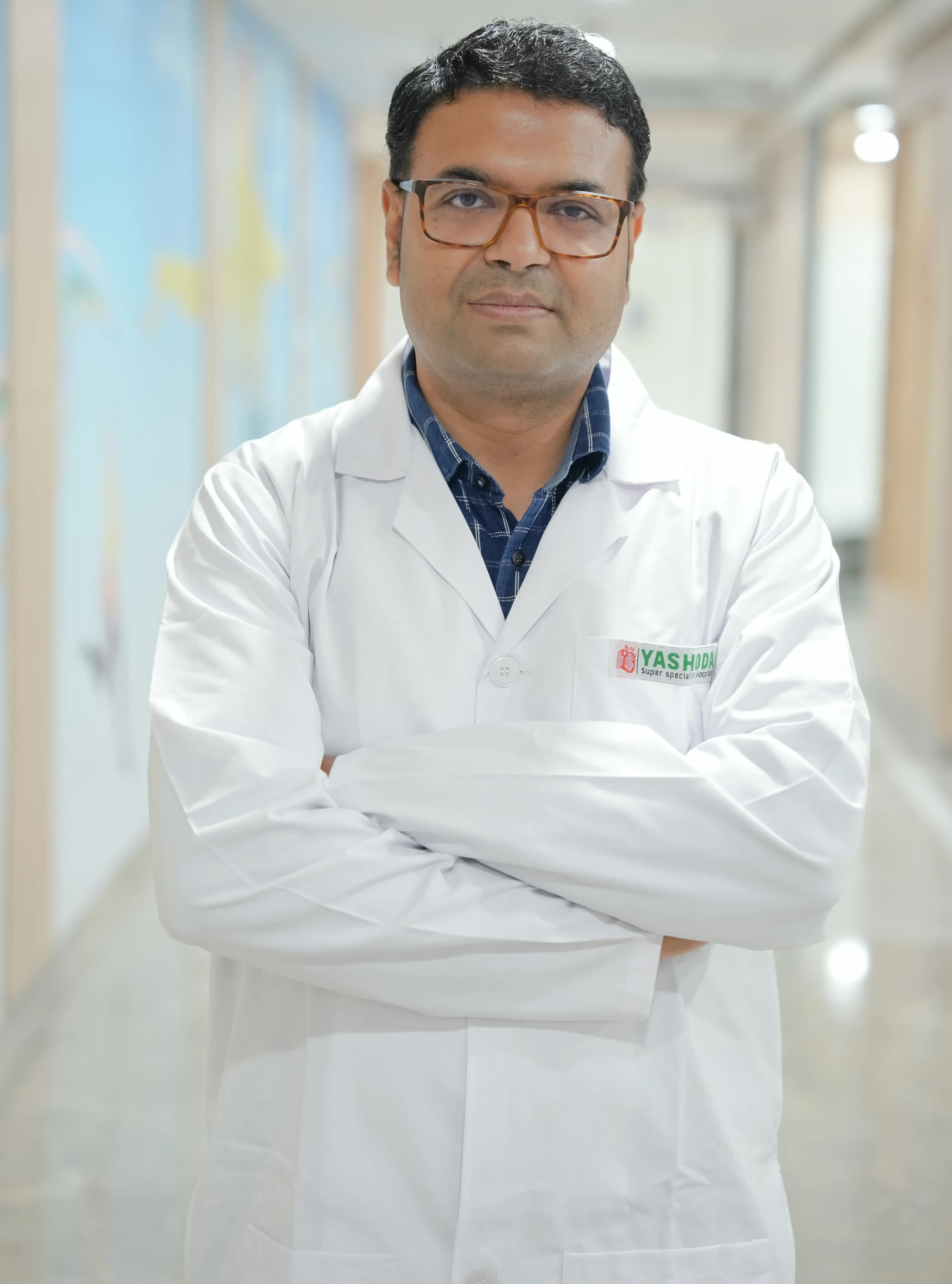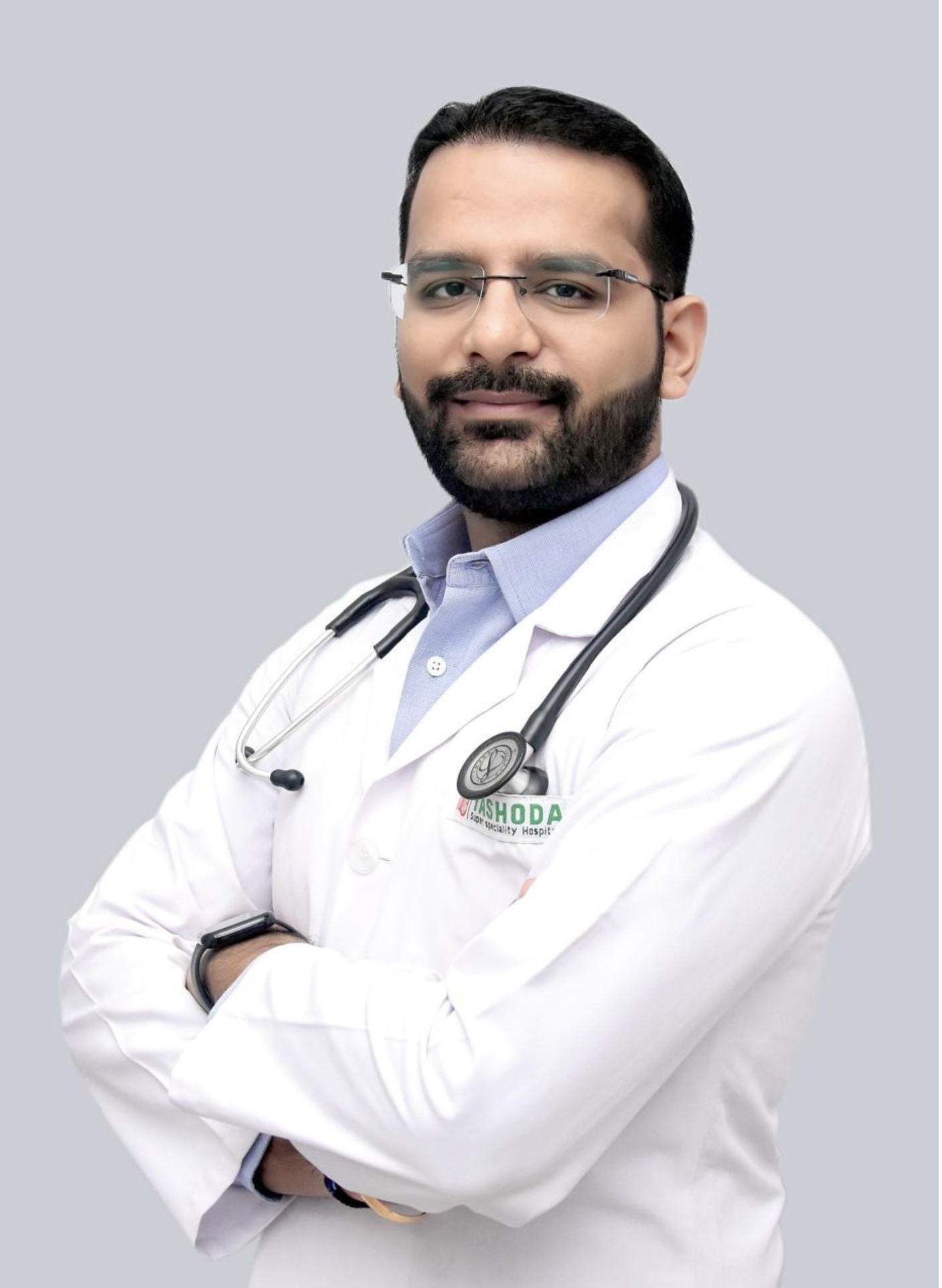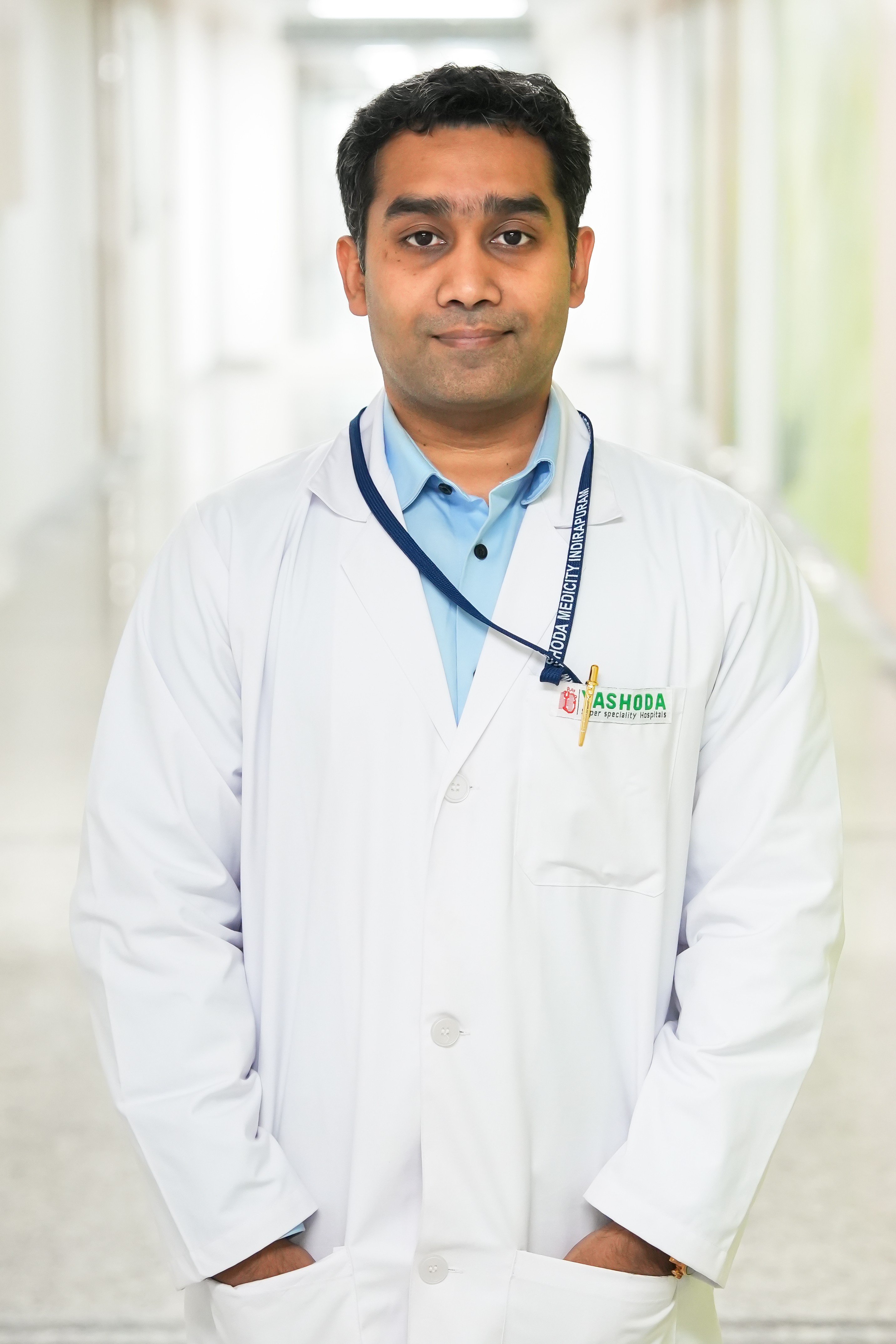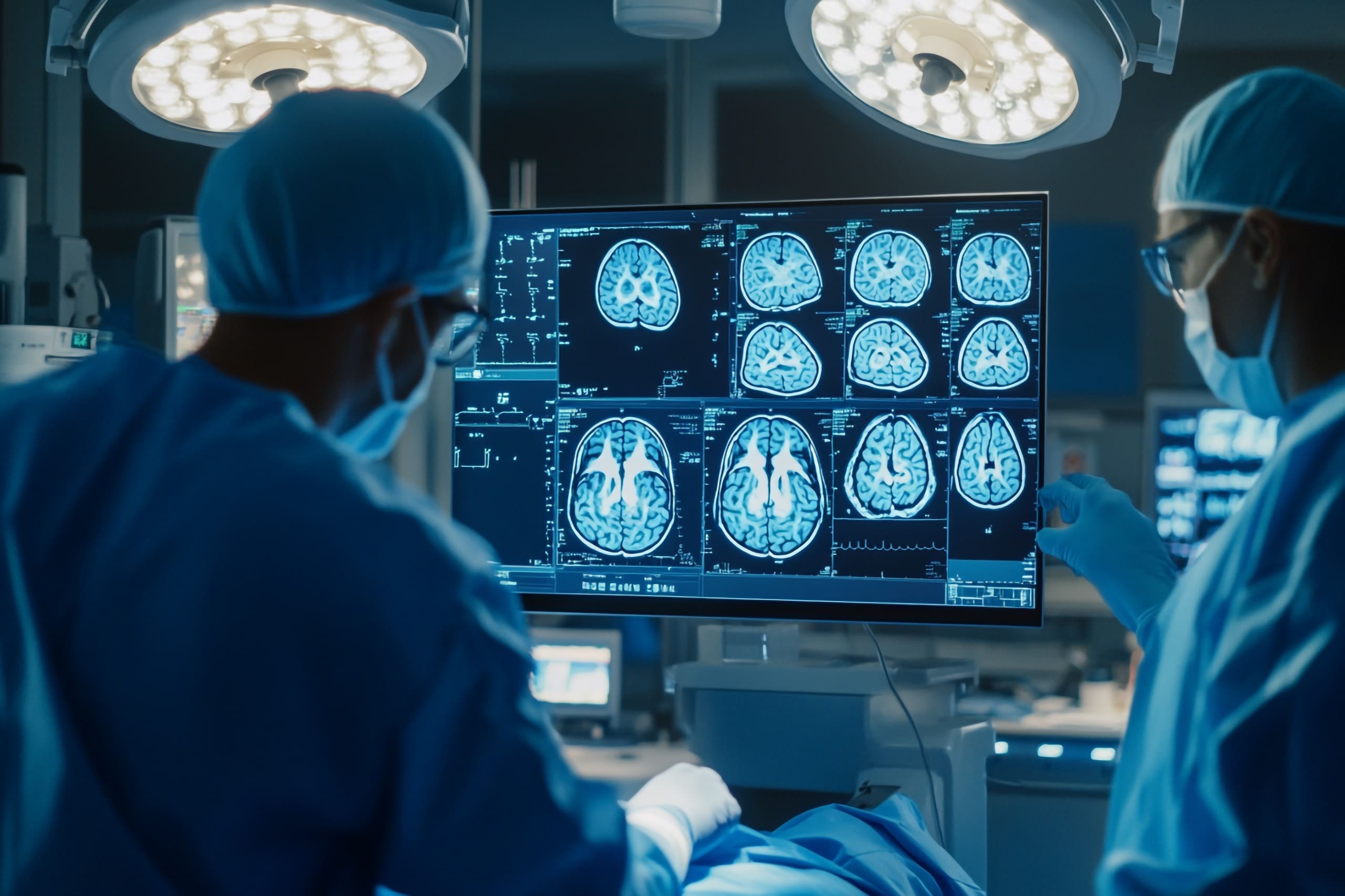 Open Emergency Modal
Open Emergency Modal
 Open Emergency Modal
Open Emergency Modal
The Yashoda Institute of Neurosciences provides comprehensive and integrated care for disorders of the brain, spine, nerves, and muscles. Bringing together expert teams from Neurology, Neurosurgery, Interventional Neuro-Radiology, and Neuro-Physiology, the institute delivers accurate diagnosis, advanced treatment, and continuity of care under one roof. Supported by state-of-the-art technology and a multidisciplinary approach, the institute manages both routine neurological conditions and complex neurovascular and neurosurgical cases with a focus on safety, precision, and long-term outcomes.
The Neurology Department provides medical management for a wide spectrum of neurological disorders, ranging from common conditions to complex and critical illnesses. Care is delivered through outpatient consultations, inpatient services, and specialised neurocritical care.
The Neurosurgery Department specialises in the surgical management of complex brain, spine, and nerve disorders. Using advanced operative technologies and minimally invasive techniques, the department focuses on precision, safety, and optimal functional recovery.
This subspecialty provides minimally invasive, image-guided procedures for vascular and structural conditions of the brain and spine, offering effective alternatives to open surgery when appropriate.
The Neuro-Physiology Laboratory supports accurate diagnosis and monitoring of disorders affecting the brain, nerves, and muscles through advanced electrophysiological testing.
 More
More

Principal Director & Unit Head, Neurosurgery

Associate Director - Neurology

Associate Director, Department of Neurology

Senior Consultant, Department of Neurosurgery

Senior Consultant - Neurologist

Senior Consultant - Minimal invasive Brain, Spine and Endovascular Neurosurgery

Associate Consultant – Neurosurgery

Conquering a Complex Brain Aneurysm with Advanced Endovascular Therapy
A patient with a spinal condition was treated at Yashoda Medicity through a navigation-guided minimally invasive spine surgery, marking the first such procedure in the state. The surgery was performed in our state-of-the-art Neuro-Spine OT, equipped with O-arm, Stealth-8 Neuronavigation, Allen table, and IONM.
The procedure was led by Dr. Dibya Jyoti Mahakul, Consultant – Minimally Invasive Neuro-Spine Surgeon, who performed the surgery with unmatched precision. Using the neuronavigation system, the team could visualize the move...
Conquering a Complex Brain Aneurysm with Advanced Endovascular Therapy
A patient with a spinal condition was treated at Yashoda Medicity through a navigation-guided minimally invasive spine surgery, marking the first such procedure in the state. The surgery was performed in our state-of-the-art Neuro-Spine OT, equipped with O-arm, Stealth-8 Neuronavigation, Allen table, and IONM.
The procedure was led by Dr. Dibya Jyoti Mahakul, Consultant – Minimally Invasive Neuro-Spine Surgeon, who performed the surgery with unmatched precision. Using the neuronavigation system, the team could visualize the movements of all instruments in real time, ensuring the accurate placement of implants.
The minimally invasive approach resulted in minimal blood loss and muscle damage, and the patient experienced immediate pain relief. This achievement underscores our commitment to leveraging cutting-edge technology to provide safe, precise, and effective surgical solutions for spine problems.
At Yashoda Medicity, we care about your back. When it comes to spine conditions, you’re in safe hands.
Treatment By:
Dr. Dibya Jyoti Mahakul

First Awake Brain Surgery at Yashoda Medicity
At Yashoda Medicity, we don’t just operate on brain tumors – we preserve normal brain functions too. We successfully performed our first awake brain surgery in our state-of-the-art Neurosurgery OT, equipped with the Kinevo 900 operating microscope with 3D exoscope, fluorescence filters, Stealth-8 neuronavigation system, BK 5000 intraoperative ultrasound, IONM, and CUSA.
Led by Dr. Dibya Jyoti Mahakul, Consultant - Minimal invasive Brain, Spine and Endovascular Neurosurgery and supported by our expert neuroanaesthesia team and neuropsychologist, the p...
First Awake Brain Surgery at Yashoda Medicity
At Yashoda Medicity, we don’t just operate on brain tumors – we preserve normal brain functions too. We successfully performed our first awake brain surgery in our state-of-the-art Neurosurgery OT, equipped with the Kinevo 900 operating microscope with 3D exoscope, fluorescence filters, Stealth-8 neuronavigation system, BK 5000 intraoperative ultrasound, IONM, and CUSA.
Led by Dr. Dibya Jyoti Mahakul, Consultant - Minimal invasive Brain, Spine and Endovascular Neurosurgery and supported by our expert neuroanaesthesia team and neuropsychologist, the patient was kept awake during key parts of the procedure, allowing continuous monitoring of neurological function.
This milestone underscores our commitment to precision-driven, comprehensive care for patients with brain tumors. It reflects our dedication to bringing cutting-edge technology to society and providing safer neurosurgical options, resulting in faster recovery and better outcomes.
When it comes to brain surgeries, you’re in expert hands at Yashoda Medicity.
Treatment By:
Dr. Dibya Jyoti Mahakul

Conquering a Complex Brain Aneurysm with Advanced Endovascular Therapy
Brain aneurysms are often described as ticking time bombs—silent, unpredictable, and potentially life-threatening if left untreated. They pose one of the most complex challenges in modern neurosurgery, requiring both precision and cutting-edge technology for successful management.
A 60-year-old woman presented with multiple episodes of severe headache, prompting her to consult Dr. Sumantao Chaterjee (Neurologist). Given the persistence and pattern of her symptoms, a brain angiography was recommended and performed by Dr. ...
Conquering a Complex Brain Aneurysm with Advanced Endovascular Therapy
Brain aneurysms are often described as ticking time bombs—silent, unpredictable, and potentially life-threatening if left untreated. They pose one of the most complex challenges in modern neurosurgery, requiring both precision and cutting-edge technology for successful management.
A 60-year-old woman presented with multiple episodes of severe headache, prompting her to consult Dr. Sumantao Chaterjee (Neurologist). Given the persistence and pattern of her symptoms, a brain angiography was recommended and performed by Dr. Dibya Jyoti Mahakul (Endovascular Neurosurgeon).
The imaging revealed a complex brain aneurysm, one that demanded meticulous planning due to its size, shape, location, and blood flow dynamics. After careful evaluation, the patient was offered a scarless, minimally invasive endovascular treatment. A flow diverter stent was strategically placed across the neck of the aneurysm to divert blood flow away from the aneurysm sac, promoting healing and preventing rupture. While technically challenging, the procedure was greatly aided by our state-of-the-art biplanar cath lab, equipped with advanced imaging tools like Vaso CT, CBCT, and MAFA software. These technologies ensured maximum precision, safety, and speed for both the patient and surgical team. Remarkably, the patient was discharged the very next day in a stable condition—aneurysm secured, risk averted.
Today, she is back home with her family, free from the shadow of a life-threatening condition, and ready to embrace life on her own terms.
Treatment By:
Dr. Dibya Jyoti Mahakul, Dr. Sumantao Chaterjee
Mr. Ajeet Kumar Verma from Yashoda Homecare provided satisfactory service of sample collection. Well behaved, humble & polite person
“I had really good experience with Yashoda Home Care, the sample collection was very hygienically taken and pain-free, hassle-free. Mr. Ajeet was the phlebotomist.”
Had a good experience with Ajeet Kumar Verma from Yashoda Home Care who supported me while I was looking for someone to dress my mom’s stitches. He is very professional and a caring person.
Great support and service by the Home care department. Everyone from Ms Niharika, Mr. Anoop to all the attendants including Mr. Natwar Pandey, Mr Inam and Mr. Ajit, all have been superbly supportive and helpful throughout. God bless you all and highly recommended.
Very good services in home care Yashoda hospital his ish
Caretaker Deepanshu and Jatin and Satish is very good caretaker I have never seen better care takers in my life.
And he is very polite behaviour and friend in nature
Yashoda hospital Kaushambi service is very good according other hospital and other home care services
The home care facility provided by the hospital is also good, the staff which was at home was cooperative.
Home care services are Good. Mr. सुनील Sajwan was cooperative and the केयर taker Mrs. Shushila's वर्क has been quite satisfactory.
Had a. Very good experience with Yashoda Homecare, Kaushambi. The staff was very cooperative with excellent on time services. I would like to give a special mention to Mr Sunil Sajwan (Sales) and Sushila ji (PCA) for their quick response and excellent services.
Fully satisfied Mr .Ajeet Kumar Verma service Yashoda home care . vry good
Was great to recieve the best homecare services from yashoda hospital and really impressed with Ms. Niharika's support at the initial phase followed by Mr. Natwar Pandey who was really supportive in taking care of my father basic daily needs.
Thanks for all the support
